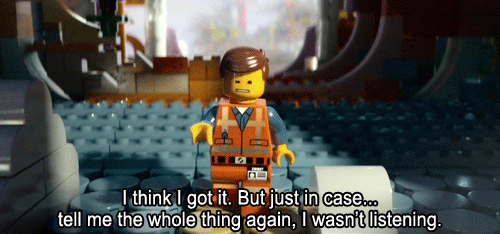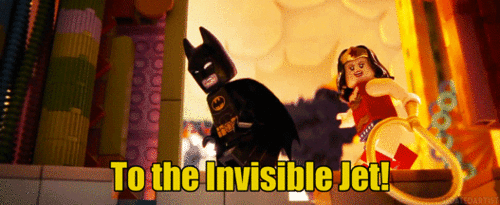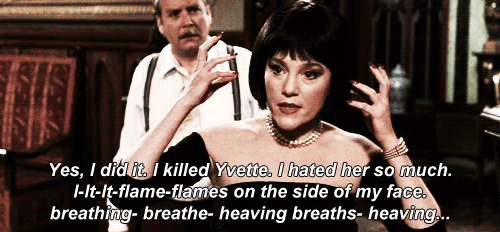Six Questions You Might Be Asking Yourself About ‘The Lego Movie’
Can such a blatant corporate tie-in actually be any good? Yes, it can.

The Lego Movie, starring an animated assortment of those Danish-born minifigs and construction blocks, alongside the voices of Chris Pratt, Will Ferrell, Elizabeth Banks, Liam Neeson and Morgan Freeman, opened in cinemas yesterday. You’ve probably got some questions about it. Let’s address them, shall we?
–
Is The Lego Movie awesome?
Yes. I mean that critically speaking, of course, but it is also right there in the catchy, earworm of a theme song called ‘Everything Is Awesome’ that’s performed by Canadian pop duo Tegan & Sara with The Lonely Island.
To the untrained ear, it’s perhaps little more than an aggressively poppy way to get The Lego Movie’s exuberant spirit stuck in the heads of susceptible minds both young and old and make them want to pay another $18 at the box office. Listen closer, however, and it’s part of what makes this animated movie such a marvel. It is catchy as all get out, but the film’s grander themes of building one’s own destiny and embracing individuality go far beyond its glossy surface. The Telegraph‘s even hailed it as “better than Gravity”. We’re through the looking glass, people.
–
Fine, The Lego Movie is awesome. But isn’t it all just a crass marketing ploy?
Well, yes and no. It’s literally impossible to deny that, when boiled down to its most basic elements, the film is but a 100-minute commercial for those world famous building blocks (safe for ages 4 and up). But even with the Lego company collaborating closely with the studio and production team (they even helped build physical sets as a reference point for the animators), the filmmakers were more or less given free range. If the film were intended as nothing more than an elaborate scheme to get parents to fork over money for the latest themed Lego sets (there are so many!), they needn’t have gone to this much effort. Even a bad movie would have resulted in a spike in sales — Pixar realised that with Cars 2 (why else would they make a third?).
Of course, that hasn’t stopped Fox News from labelling the film as “communist propaganda”. Because nothing says Stalin and Marx more than making millions upon millions of dollars at the box office from Batman puns.
–
But aren’t they just commercialising our childhood?
They’ve been doing that forever! We’re kidding ourselves if we believe The Lego Movie is a step beyond the pale; at some point or another we’ve all been suckered into paying to see something that came to exist through less than artistically sound means. Pokémon The First Movie: Mewtwo Strikes Back (1998), perhaps? Or how about Michael Bay’s Transformers (2007), and those Teenage Mutant Ninja Turtles (1990)? Furthermore, isn’t each subsequent Marvel or James Bond film merely a big commercial for a) the next one, and b) the home entertainment release?
The Lego Movie‘s filmmakers at least had the good sense to push the product placement element to the side, admitted they were making a movie about a toy, and attempted to make it great, whether by accident or not. “Right from the start we were skeptical, because people could see it as a giant commercial and that wasn’t something we were interested in doing…” noted directors Phil Lord and Christopher Miller. “So [we used] Lego as a medium, rather than a product to sell.”
–
So The Lego Movie is awesome, and not a crass marketing ploy? How is that possible?
I’m glad you asked! The film was directed by Phil Lord and Christopher Miller, after all. They’re the pair that somehow turned a movie called Cloudy With A Chance Of Meatballs (2009) into something that wasn’t entirely embarrassing, nor was their 21 Jump Street (2012) adaptation the worst idea known to mankind. Even though their first three films have been based on a popular kid-lit title, an ’80s TV reboot, and a toy set, they’re no corporate shills.
Furthermore, the film really is lovely to look at. It’s colourful and intricately animated so as to look as if it was made by hand, even though it’s all CGI. Animal Logic, the Australian company tasked with animating the movie, took inspiration from all over the map in their visual design, including, most surprisingly, the very R18+ drug epic, Enter The Void (2009). The writing is whip-smart, and not just doled out in a senseless, hyperactive sugar-high like so many other zany kids’ films. It’s full of intelligent satire about capitalism for adults — the villain, voiced by Will Ferrell, is named Lord Business and has turned the Lego land into a world of brainwashed sheeple — and a strong message of individualism and creativity as king for the younger audiences.
Also, the voice actors are spot on. Chris Pratt’s perfect as the unpopular societal sheep Emmet, who’s in the same wheelhouse as his hilariously nutty Andy Dwyer on Parks And Recreation. Will Arnett makes a suitably gruff-voiced Batman, and I’m not kidding when I say this is Morgan Freeman’s best performance in YEARS. His voice has become so ubiquitous so as to incite groans, but here he’s sprightly and totally game for the ridiculous nonsense his mythological character has to spout, even taking part in a ‘Lego bloopers’ bit like a good sport.
–
You’ve convinced me. Is this the first time something like this has actually worked?
The world of film/brand tie-ins isn’t always frought with disasters like Battleship (2012), which was so terrible that not even Alexander Skarsgård in a naval uniform could save it. Jonathan Lynn’s Clue (1985), for example, remains a comedy masterpiece. Unlike today, the thought of adapting something like Parker Brothers’ murder mystery board game Cluedo was once considered tacky — even for an industry as shameless as Hollywood — and the film flopped at the box office (although, lest we forget they also adapted it into a silly yet entertaining television series starring Andrew Daddo as Professor Plum). In retrospect, it really was weird that the same six people were just allowed to keep offing people week after week and nobody seemed to be able to stop them, but in a world that has 100 episodes of Midsomer Murders, anything is possible.
BMW once had the wise idea to hire famous film directors like Ang Lee, Guy Ritchie, John Woo, Tony Scott and Wong Kar Wai to make ten-minute short films masquerading as car commercials, and compiled them into what’s known as The Hire (2001-02). The end result ultimately feels like a collection of high-octane Super Bowl ads strung together, except for the fact they’re (almost) all great. Even Madonna manages to give one of her better performances in her vignette as a spoiled superstar.
And perhaps one of the strangest ‘film-as-product placement’ examples is Tim Burton’s bonkers, all-star alien invasion comedy, Mars Attacks! (1996), adapted from (what else?) a series of trading cards. The end product is actually rather endearing, sly in its critique of American gung-ho war mentality and more than a bit goofy.
–
So it really is awesome then?
Yep.
–
The Lego Movie is now showing in cinemas nationally.
–
Glenn Dunks is a freelance writer and film critic from Melbourne, and currently based in New York City. His work has been seen online (Onya Magazine, Quickflix), in print (The Big Issue, Metro Magazine, Intellect Books Ltd’s World Film Locations: Melbourne), as well as heard on Joy 94.9.


